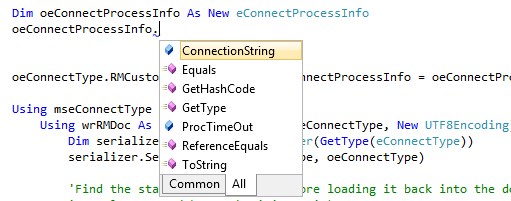eConnect 2010 - eConnectProcsRunFirst
eConnectProcsRunFirst is not part of eConnectProcessInfo for eConnect 2010
eConnectProcsRunFirst is not present in the schema for GP2010 eConnect. Just to confuse people, the documentation in the eConnect SDK still references it in quite a few places still.
Converting eConnectProcsRunFirst to use eConnect 2010
What to do when converting previous versions? It seems to be very simple, the order of the nodes in the XML document submitted to eConnect defines the run order. So if a custom stored procedure is required to run first, ensure it is placed first in the XML document relative to the item it must run ahead of. Yes it is that simple!
What is eConnectProcsRunFirst?
When using eConnect it is possible to include calls to your own custom stored procedures by adding in notes following a naming convention that pairs with the name of the custom stored procedure in the GP database.
In versions previous to Dynamics GP eConnect 2010, the order that these custom procedures ran relative to the rest of the eConnect transaction could be asserted using the eConnectProcessInfo node by specifically setting;
When using the .NET serialization class, this was available as a property to set against the ProcessInfo Class as shown below;
Dim oeConnectProcessInfo As New eConnectProcessInfo
oeConnectProcessInfo.eConnectProcsRunFirst = "TRUE"
Now trying this in eConnect 2010 does not work as the method is not there, see illustrated by intellisense below;
So in the .NET serialization class we no longer have no eConnectProcsRunFirst option available.
eConnect SDK, change list for eConnectProcessInfo
Reading the change notices in the SDK2010 documentation, reveals that indeed that node has been removed in 2010. You might like to konw what else has gone from that schema\class.
List of nodes removed from eConnect eConnectProcessInfo for GP2010
- ProductName
- Sender
- Outgoing
- EConnectProcsRunFirst
- MessageID
- SiteID
- DocumentName
- Version
- DateTimeStamp1
- DateTimeStamp2
- DateTimeStamp3
- DateTimeStamp4
- DateTimeStamp5
- Userdef1
- Userdef2
- Userdef3
- Userdef4
- Userdef5
- ProcReturnCode
So there we have it, its gone.

